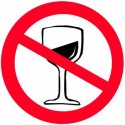How Depression Treatment Centers Help you Feel Better
Depression affects millions of people worldwide causing grief and despair that interferes with regular routines, happiness and lifestyle satisfaction. According to the University of Michigan Health System, depression is most often recognized early in life during the late teens or early stages of adulthood. Unfortunately, the signs are often overlooked allowing the severity of the condition to worsen before proper treatment is sought. Depression treatment centers, the primary means of inpatient care for those who are significantly incapacitated by their depression symptoms, can help you feel better by providing an array of supportive care as well as medical treatment that aims to reduce symptoms and restore stability.
Personalized Treatment
Various forms of therapy have been proven effective in treating depression and bipolar disorder. Talk therapy, one of the primary forms of treatment, is often utilized to assist those who are depressed in overcoming various challenges in the thought processes that they have pertaining to their life, stress, past trauma or present situation. Personalized treatment is provided in a treatment center to help match your needs with an appropriate treatment regime that will be both comfortable and effective to your recovery. In addition to talk therapy, you may also receive the following types of helpful care in a treatment center:

Getting treatment for depression can greatly improve your symptoms.
- Medical intervention
- Trauma resolution therapy
- Family therapy
- Interpersonal therapy
- CBT
- Psychodynamic therapy
- Support groups
Medication
Depression medications often take time to work—and patients most often do not want to allow the medication appropriate time to work; this makes treating depression a difficult process. Depression treatment centers provide medical treatment including the administration of depression medications that can help you feel better. According to the National Alliance on Mental Illness, research shows that combining medication and psychotherapy for a personalized treatment approach is the most effective means of care for someone who suffers from depression.
Medications that are often prescribed in the treatment setting include:
- Wellbutrin
- Remeron
- Abilify
- Seroquel
- Elavil
- Norpramin
Support
The Depression and Bipolar Support Alliance, in conjunction with NAMI, recommends that although medication and psychotherapy are highly effective in treating depression, support is also recommended. When receiving help from a depression treatment center, you will also be encouraged to become involved in a strong system of support through your peers, your therapist, your family and your friends. Peer support can help you to understand and tune into your recovery, heal from the challenges that depression has caused in your life and find stability that works for you. Even if symptoms of depression are burdensome or challenging in your life, support can and will help!
